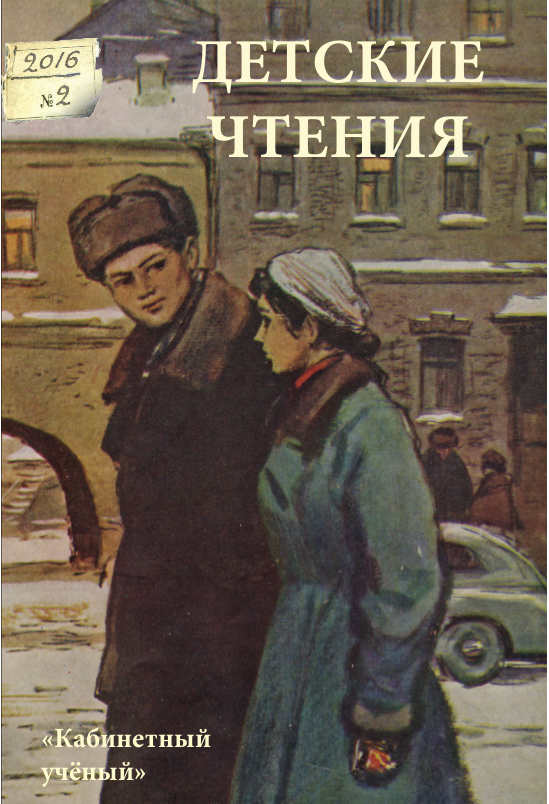ShKID Republic and the Dostoevsky School in the Context of Pedagogical Discussions of the 1920s-1960s
Abstract
This article analyzes different interpretations of the novella, The ShKID Republic (1927) by Grigoriy Belykh and L. Panteleev. The article reveals the fact that the discussion over the discourse on this literary work was not separated from the debate over the very nature of the pedagogical experiment decried in the novella. Critics have paid most of their attention to the pedagogical innovations introduced by Viktor Soroka-Rosinskiy, the head of the Dostoevsky School. In 1920-1930s, debates on adolescents’ education guided the examination of the literary value of the book. Opposite to this earlier experience, the renewed popularity of the novella in the 1960-1980s stimulated the discussions of the unorthodox pedagogical concepts revealed through the narrative.
Keywords: Grigoriy Belykh, Anton Makarenko, L. Panteleev, Viktor Soroka-Rosinskiy, children’s literature of 1920s, The ShKID Republic, The Dostoevsky School, Thaw period







